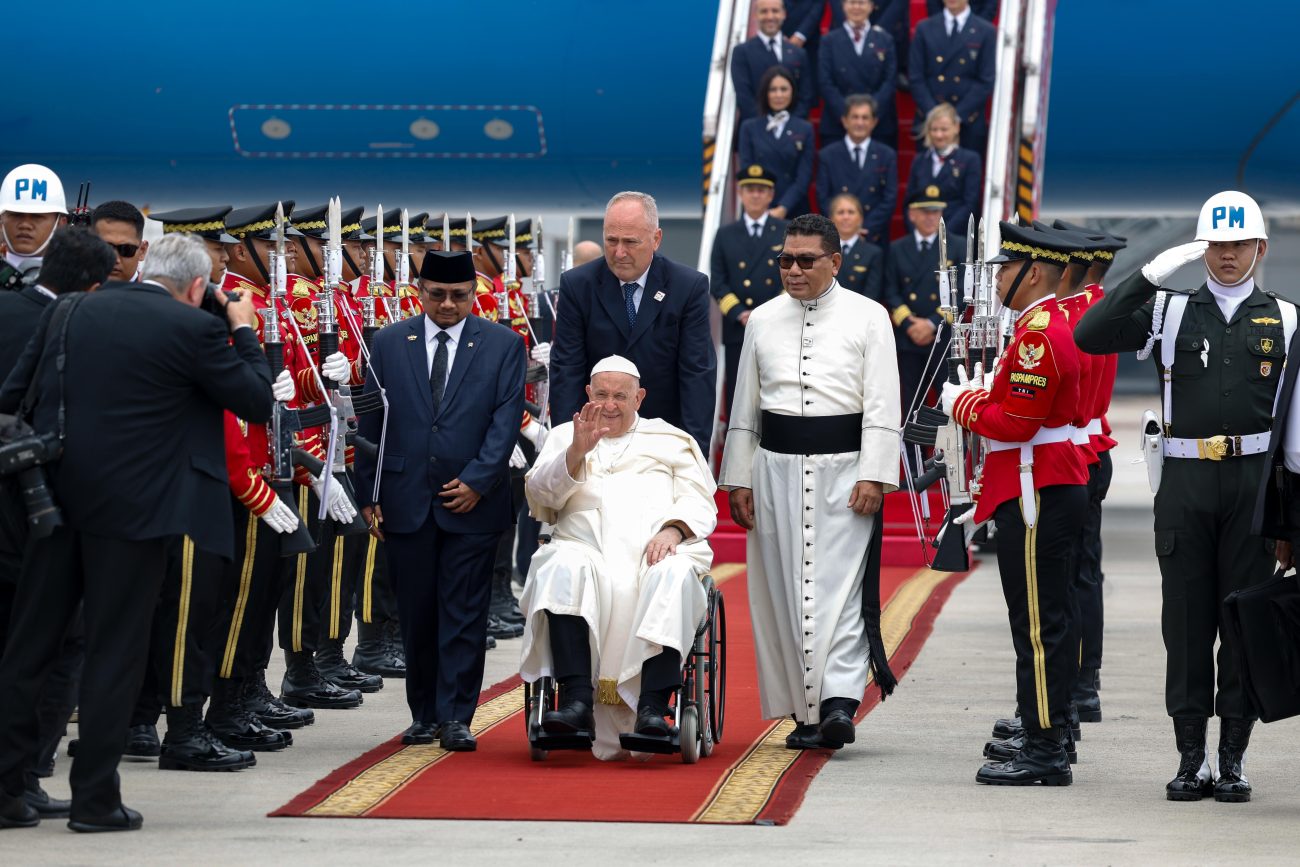JAKARTA, Indonesia (CNS) — Pope Francis landed in Jakarta after a 13-hour flight from Rome and was greeted by the religious affairs minister of Indonesia and two children in traditional dress who offered him flowers.
After such a long flight, the pope was scheduled to take the remainder of Sept. 3 to rest and try to get used to the five-hour time difference between Rome and Jakarta.
However, before resting, Pope Francis visited with migrants and refugees assisted by Jesuit Refugee Service, orphans cared for by Dominican sisters and elderly and sick people assisted by the Community of Sant’Egidio.
The visit Sept. 3 took place at the apostolic nunciature where the pope is staying while in Indonesia.
At the beginning of the flight Sept. 2, the 87-year-old pope thanked reporters for accompanying him on the longest trip of his pontificate; he planned to visit Indonesia, Papua New Guinea, Timor-Leste and Singapore before returning to Rome Sept. 13. Although relying heavily on the seat backs and his cane, the pope walked the entire length of the ITA A330, greeting each of the 75 journalists aboard.
Matteo Bruni, director of the Vatican press office, told reporters to expect Pope Francis to talk in Indonesia about the importance of fidelity to preserving the unity in diversity enshrined in the country’s constitution.
While Indonesia has the largest Muslim population of any country in the world, it also is home to Catholics and other Christians, Buddhists and Hindus. The country also boasts of having more than 300 ethnic groups with dozens of languages.
The pope’s schedule includes an interreligious meeting at Southeast Asia’s largest mosque as well as opportunities to meet with the nation’s Catholics and to visit some of the social and charitable works they carry out in Jesus’ name.
In Indonesia, like the three other island-nations on the trip — Papua New Guinea, Timor-Leste and Singapore — care for the environment is also expected to be a key theme, Bruni told reporters Aug. 30. In fact, Indonesia is in the process of building a new capital city, Nusantara, because Jakarta is sinking below sea level from the excessive withdrawal and use of groundwater to meet the needs of its growing population.
PREVIOUS: Pope Sets Off on Longest Trip of His Pontificate
NEXT: Share the Gospel with Joy, Pope Tells Indonesia’s Churchworkers



Share this story